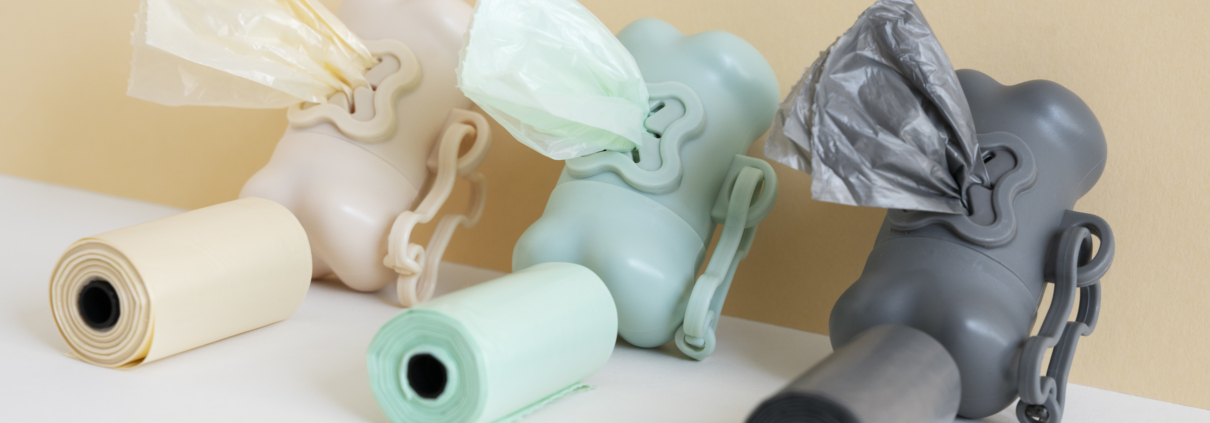Can I store wet waste in biodegradable garbage bags?
In today’s world of conscious consumerism, many households and businesses are moving toward greener alternatives for everyday essentials—including how they dispose of waste. One common eco-friendly option now widely available is the biodegradable garbage bag. But when it comes to wet kitchen waste—think vegetable peels, leftover food, or even coffee grounds—are these bags a reliable choice?
Let’s unpack how biodegradable bags perform when handling wet waste, their benefits, and what to be aware of.
Understanding Biodegradable Bags
These bags are typically made from plant-based or compostable materials like corn starch, cassava starch, or PLA (polylactic acid). Unlike conventional plastic, they are designed to break down naturally under composting conditions, often within a few months. Because they degrade without leaving toxic residues, they’re increasingly seen as a solution to plastic waste problems.
Can They Handle Wet Waste?
Yes, biodegradable bags can be used for wet waste—but there are a few conditions. While they offer basic resistance to moisture, they’re not fully waterproof. That means they work well for short-term storage of wet materials, especially in home kitchens or offices, but they aren’t meant to store soggy waste for extended periods.
Here are some practical insights:
- Daily kitchen waste like fruit peels, tea leaves, and leftovers can be safely stored if the bag is disposed of within 24 hours.
- For composting setups, these bags are actually ideal since both the bag and its contents decompose together.
- Using a small bin or bucket to support the bag helps maintain its shape and reduce the risk of tearing, especially with heavier waste.
Why Use Them for Wet Waste?
There are multiple benefits to using biodegradable garbage bags even for wet waste:
Environmental Benefit
Their composition ensures a lower carbon footprint and less harm to ecosystems, particularly when disposed of correctly in composting systems.
Hygiene
They offer a cleaner, more hygienic option than paper or cloth bags, especially in kitchen areas where wet food waste accumulates quickly.
Legal Compliance
Many regions now restrict single-use plastic bags under local or national legislation. Biodegradable alternatives offer a compliant solution without compromising usability.
Choosing the Right Bag
If you’re planning to use these bags for wet waste, here’s what to look for:
- Thickness: Go for bags that are at least 20–25 microns thick. Thicker bags can handle moisture better and are less likely to tear.
- Certifications: Always check for compostability standards such as IS/ISO 17088 (India), EN 13432 (EU), or ASTM D6400 (US).
- Size: Choose the right size based on the volume of your daily waste. Overfilling a bag designed for light use can lead to leakage or tearing.
Common Mistakes to Avoid
- Storing wet waste for too long: These bags are not made for storing waste over several days, especially in hot or humid environments.
- Using them with sharp or heavy items: Items like bones or dense vegetable waste can weaken the structure.
- Mixing them with non-compostable trash: This defeats the purpose of using biodegradable solutions.
Do They Really Break Down?
Yes—when disposed of in the right environment. They decompose in compost bins or industrial composting facilities within a few months. However, if tossed into a landfill, their breakdown may be slower due to the lack of oxygen and microbial activity.
This makes it essential to pair biodegradable bags with responsible disposal practices.
Final Thoughts
Biodegradable garbage bags can absolutely be used to store wet waste, provided they’re used properly and not overburdened. For homes and businesses aiming to reduce their environmental footprint, they’re a smart alternative to traditional plastic.
Just remember: they perform best when you dispose of waste daily, support the bag with a bin, and avoid overloading it. In doing so, you’re not just managing your wet waste—you’re supporting a cleaner, greener future.


Leave a Reply
Want to join the discussion?Feel free to contribute!